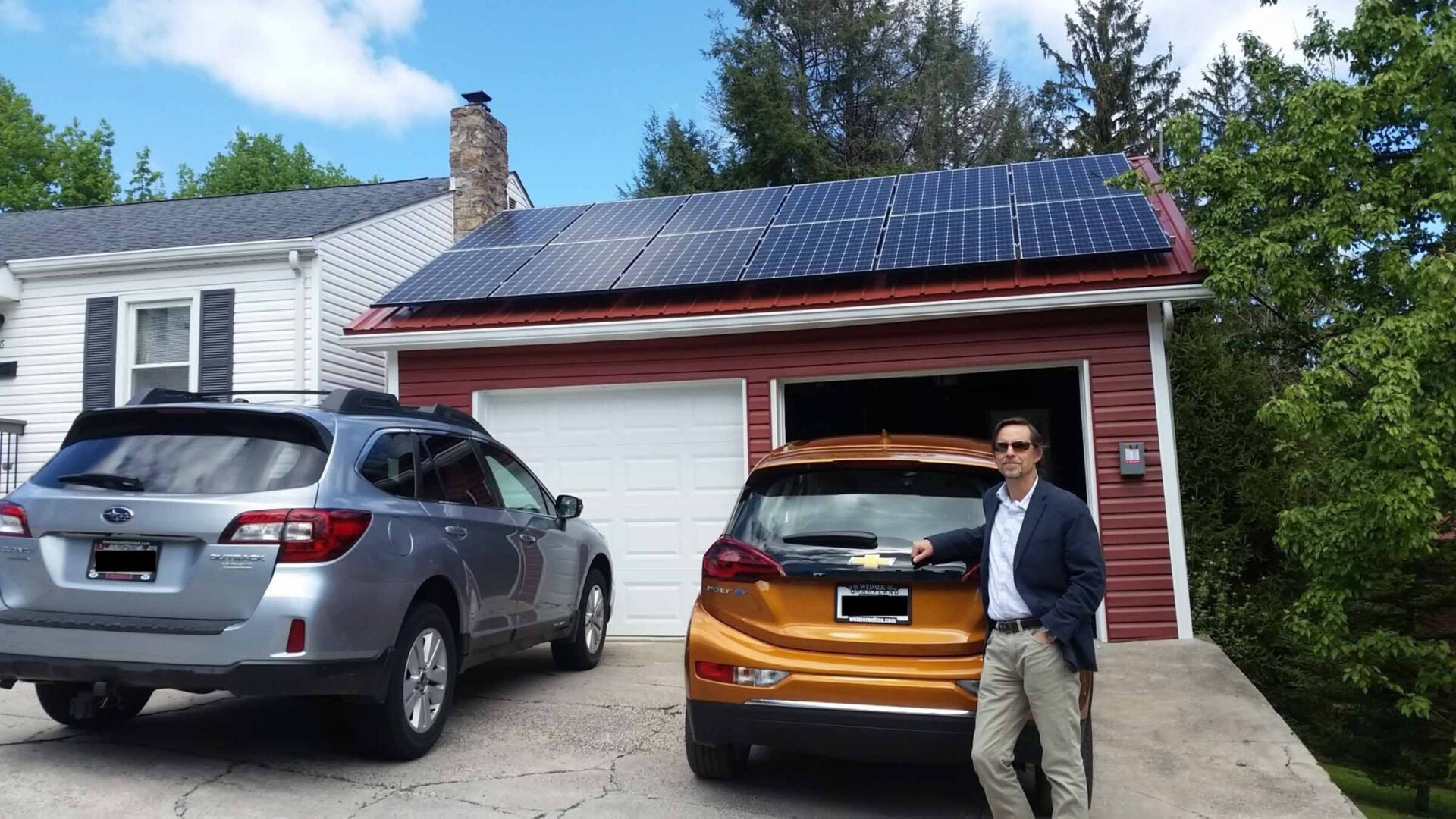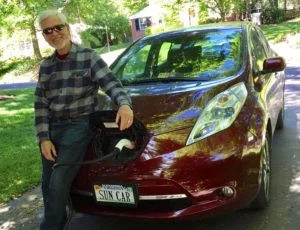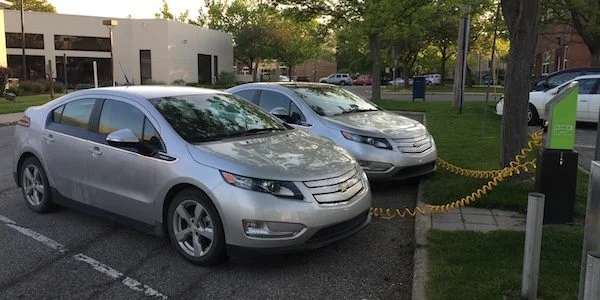Electric Vehicles in D.C.
- Factsheet

Why electric vehicles and solar?
Electric vehicles (EVs) are quickly becoming a more affordable and lower maintenance option than traditional gasoline or diesel-fueled cars.
EVs and solar in D.C.
Electric vehicles and charging stations are accessible throughout D.C., with 380 charging station locations. See the full list here, on the U.S. Department of Energy Electric Vehicle Charging Station Location feature.
The District has several incentive policies that make purchasing an EV more attractive. Normally when residents purchase a vehicle there is an excise tax of 1-10% (based on the weight and efficiency), but electric vehicles are currently exempt from this tax. The city also provides a tax credit for 50% of the cost of installation of EV charging infrastructure, up to $1,000 for residential and $10,000 for publicly accessible stations.
Historically, Solar United Neighbors was involved in two action items to promote electric vehicles in the District:
- The Electric Vehicle Public Infrastructures Expansion Act of 2017
- Pepco’s Electric Vehicle Pilot Project
The Electric Vehicle Public Infrastructures Expansion Act of 2017, introduced by Council Member Mary Cheh, became law on March 29, 2018. It pushed the D.C. Department of Transportation to install 15 electric vehicle charging stations across all wards in D.C. by January 2019. It also requires DDOT to analyze usage data and write a public report recommending locations for additional charging stations, continuation of public/private partnerships, and other policies to incentivize EV adoption.In April 2017, Pepco filed a proposal to conduct an electric vehicle pilot project that incentivizes EV owners to charge during off-peak hours (8 p.m. to 8 a.m.) to manage the additional electricity demand from these vehicles. The proposed pilot would test time of use (TOU) rates in combination with the installation of level 2 electric charging stations for residential, commercial, and public spaces. It also proposed installing up to 4 public DC fast chargers. Solar United Neighbors intervened in this proceeding, fighting for rules to allow solar homeowners to participate in the pilot.

In December 2017, the Public Service Commission ruled that Pepco’s pilot should be processed through the ongoing grid modernization proceeding (MEDSIS). In response, Pepco revised the pilot and has informed stakeholders of new details through a series of meetings held in 2018, after which Pepco will refile the proposal with the Commission. In addition to the TOU rates, new program features include a larger number of opportunities for residential (including multi-unit developments) and commercial participants, more public level 2 and D.C. fast charging stations, a grant fund for innovative third-party projects, and technology education/demonstration tools.
Washington D.C. received $8.1 million from the VW settlement. Although no funds were allocated to EV charging in the city’s plan, DOEE does plan to improve air quality by spending $4.2 million on electrifying city transit buses and refuse trucks and $3.1 million on upgrading diesel locomotive switcher cars at Union Station with better diesel engines.

Electric Vehicle Charging Guide
EV chargers are classified into three categories: level 1, level 2, and level 3 (DC Fast charging). The categories are defined by the power and rate at which they charge a vehicle and the electric infrastructure required for installation and operation.
Explore our Electric Vehicle Charging Guide.
Learn the basics of electric vehicles and how an EV charger can save you money while strengthening the grid.
D.C. resources
- The Electric Vehicle Association of Greater Washington, D.C. – An organization of electric vehicle owners, educators, and enthusiasts dedicated to promoting the use of electric vehicles as an environmental and energy benefit to society.
D.C. incentives for EVs – A specific list of incentives available to D.C. EV owners.
Go solar in D.C.!
Get the latest on solar straight to your inbox.
Fight for your solar rights.
Everyone has the right to go solar. Spread the sunshine nationwide and in your local community by taking action, joining events, and more.